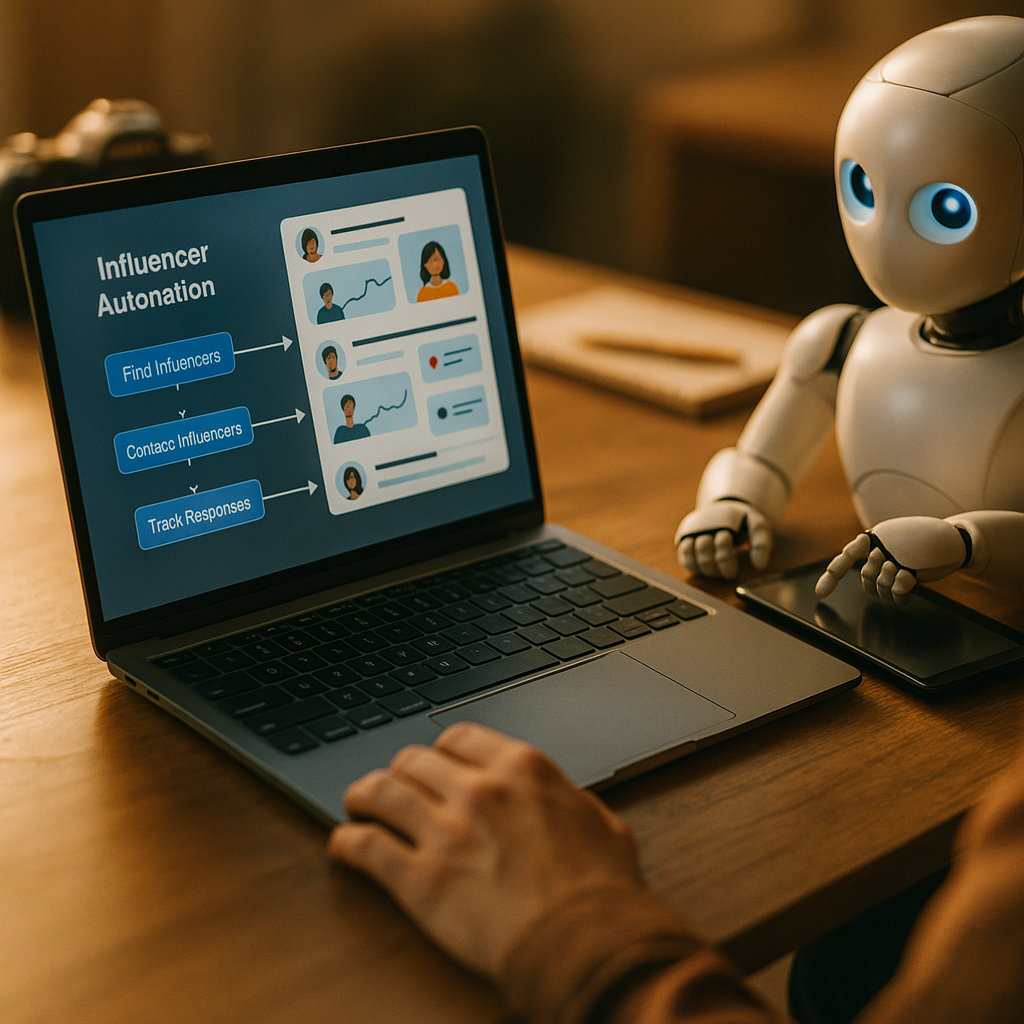Robotic Process Automation for influencer campaign management is transforming how brands execute, monitor, and optimize social media engagements. By automating repetitive workflows, companies boost efficiency and unlock valuable insights. In today’s fast-paced digital arena, human-led campaigns alone can’t keep up. Discover how RPA can refine your influencer strategies and outpace your competition in 2025 and beyond.
Streamlining Influencer Sourcing with RPA Technology
Finding the right influencers is vital to campaign success, yet it’s also among the most resource-intensive steps. Robotic Process Automation tools are revolutionizing influencer discovery by crawling social platforms, analyzing follower engagements, and filtering candidate lists based on preset criteria such as audience demographics, niche, and engagement rates. This drastically reduces manual research time.
With advanced RPA, brands can:
- Automate aggregation of influencer data from multiple social platforms
- Apply custom filters for follower authenticity and past campaign outcomes
- Identify micro- and macro-influencers whose audiences match campaign objectives
This systematic approach means that decisions are driven by data rather than bias or incomplete information, resulting in higher campaign relevance and ROI.
Enhancing Campaign Coordination via Automated Workflows
Automated workflow management is redefining how teams collaborate with influencers. RPA software can schedule outreach, coordinate contract paperwork, send reminders for deliverables, and centralize communications in real-time dashboards.
- Standardizes briefing documents and onboarding materials
- Triggers notifications for campaign milestones
- Tracks deliverable submissions and approval cycles
This seamless coordination relieves marketing teams from laborious follow-ups and enables managers to oversee more campaigns simultaneously, enhancing productivity without sacrificing quality.
Boosting Compliance and Fraud Detection in Influencer Programs
Brand safety and regulatory compliance have become non-negotiable, especially with global privacy regulations. RPA in compliance monitoring enables:
- Automated contract audits to ensure influencer agreements comply with disclosure guidelines
- Monitoring for plagiarism, inappropriate content, or fake followers
- Integration with fraud detection tools to prevent budget wastage
According to a 2025 Statista report, influencer fraud cost advertisers over $1.1 billion in lost budgets last year. Automated vigilance minimizes these risks, protects brand reputation, and ensures partnership authenticity at scale.
Supercharging Reporting and ROI Measurement with Intelligent Automation
Brands need to prove campaign value. Automated reporting for influencer marketing simplifies the process of gathering campaign data, calculating KPIs, and visualizing performance metrics.
RPA bots can:
- Extract data from native platform APIs (Instagram, TikTok, YouTube, etc.)
- Compile comprehensive dashboards on reach, impressions, click-through rates, and conversions
- Send scheduled performance summaries to stakeholders
These automated insights enable agile adjustments to live campaigns and better inform future influencer partnerships, ensuring continual optimization and maximum ROI.
Ensuring Data Security and Ethical Operations in Automated Campaigns
With automation handling vast influencer and consumer data sets, data security is paramount. RPA applications, when deployed responsibly, include:
- Adherence to GDPR and updated privacy laws
- Automated anonymization of personal data
- Audit logging of campaign interactions for full traceability
Marketers should partner with RPA vendors who prioritize ethical practices, offer transparent reporting, and update protocols to reflect the latest legal and ethical frameworks, safeguarding both brand and consumer interests.
The Future of RPA in Cross-Channel Influencer Campaigns
The influencer landscape is no longer limited to mainstream social channels. Advanced RPA solutions now support cross-channel integration—connecting Instagram, Twitch, podcasts, and even virtual experiences into cohesive campaigns.
Key trends and opportunities in 2025:
- Seamless campaign migration between platforms to follow audience shifts
- Use of AI-enhanced RPA for predictive influencer selection and content personalization
- Real-time A/B testing automation to optimize campaign tactics instantly
Mature RPA platforms continue to evolve, offering brands an unparalleled competitive advantage in a fragmented digital landscape.
Robotic Process Automation for influencer campaign management empowers brands to navigate complexity, automate with confidence, and amplify their digital strategies. To stay ahead in 2025’s dynamic influencer landscape, integrate RPA solutions—unlocking efficiency, compliance, and campaign effectiveness at scale.
FAQs about Robotic Process Automation for Influencer Campaign Management
-
What is Robotic Process Automation in influencer marketing?
RPA uses specialized software bots to automate repetitive, rule-based tasks in influencer marketing, such as sourcing influencers, managing contracts, collecting campaign data, and generating reports.
-
Can RPA tools detect fake influencers or followers?
Yes. Modern RPA tools integrate with fraud detection systems to identify suspicious patterns, such as inflated follower counts or engagement rates, helping brands work only with authentic partners.
-
How does automation improve influencer campaign ROI?
Automation reduces manual effort, eliminates human error, delivers real-time campaign insights, and enables data-driven decision-making—all of which increase efficiency and offer better returns on investment.
-
Is sensitive data safe with RPA in influencer marketing?
When implemented by reputable vendors, RPA systems follow modern data security protocols, including encryption, anonymization, and regulatory compliance, ensuring the safety of consumer and influencer data.
-
Will RPA replace human roles in influencer campaign management?
No. RPA complements human creativity and relationship-building by handling repetitive, administrative work. Marketing experts are still essential for creative strategy, storytelling, and brand vision.
